MARITIME-RELATED SKILLS ASSESSMENT AND TRAINING NEEDS OF WORKERS IN SHIPBUILDING AND SHIP REPAIR SECTOR
The study in collaboration
with the Maritime Industry Authority (MARINA), aimed to generate information on
skills available vis-Ã -vis skills required in SBSR sector to be able to
identify skills gaps and thereafter propose strategies and approaches to
address the identified gaps. Two
questionnaires were administered – Questionnaire 1 for the company profile and
Questionnaire 2 for qualification requirements of employers, to 95 shipbuilding
and ship repair entities. A total of 68 companies responded to Q1 and 73
companies to Q2. Company profile showed
a total of 2660 workers, mostly belonging to the preparation and production
category, were employed in 68 companies.
Furthermore, the sector is proven to be male-dominated with young adult
workers, and graduates of technical vocational courses. Salary ranges according to hierarchy of positions. As to skills, most workers rated themselves Average in Electric Arc Welding, Electrical Skills and Boatbuilding
and Good in Ship Fitting and Sheet
Metal Works. Workers attended company-required
trainings mostly in Basic Safety, Occupational Safety and Value Practices. On the other hand, the preferred
qualification
requirements of SBSR companies in hiring workers are male, between 26-35 years
old, college graduate for managers, designers/engineers, and administrative
personnel and a technical-vocational background for workers in the work
preparation and production and heavy equipment operation categories. Employers preferred workers with previous
work experience than having a license as well as required specific trainings
for each position category. Analysis on
what is available and what is required therefore showed absence of gap in terms of education. However, a gap is noted in terms of trainings
attended since employers have other training requirements which workers have
not attended yet. A skills gap is
likewise noted. The study therefore,
recommended to establish minimum training requirements related to maritime safety
and occupational safety, and also require SBSR workers to undergo job-specific
trainings. A system of certification of
SBSR workers is likewise recommended.
1 Comment(s)
Upcoming Event
Research Archives
- MANAGING THE THREATS OF COVID-19 TO SEAFARERS' HEALTH AND WELL-BEING: RESPONSE OF THE PHILIPPINE MARITIME INDUSTRY (PHASE 2)
- PHILIPPINE DOMESTIC MARITIME INDUSTRY'S COMPLIANCE WITH MLC, 2006: CHALLENGES OF IMPLEMENTATION
- ISSUES AND CONCERNS ON THE NON-RATIFICATION OF THE PHILIPPINES OF THE INTERNATIONAL CONVENTION ON STANDARDS OF TRAINING, CERTIFICATION AND WATCHKEEPING FOR FISHING VESSEL PERSONNEL (STCW-F)
- PHILIPPINE MARITIME MANPOWER FACTBOOK 2020 & 2021
- THE CAPACITY OF THE PHILIPPINE MARITIME INDUSTRY TO PRODUCE OFFICERS-IN-CHARGE (OIC) PER STCW REQUIREMENTS: FOCUS ON THE ONBOARD TRAINING (OBT) OF CADETS
- PHILIPPINE EMPLOYMENT LAWS RELATIVE TO SEAFARERS: FOCUS ON THE PHILIPPINE ARBITRATION SYSTEM AND AMBULANCE CHASING
- EMPLOYMENT ACCEPTABILITY OF WOMEN IN PHILIPPINE DOMESTIC SHIPS
- AUTONOMOUS SHIP TECHNOLOGY: ITS IMPLICATIONS TO PHILIPPINE MARITIME INDUSTRY
- REQUIRED NON-TECHNICAL (ESSENTIAL) SKILLS BY EMPLOYERS FOR SHIPBOARD EMPLOYMENT OF MANAGEMENT LEVEL OFFICERS
- PERCEPTION OF NMP FEMALE TRAINEES TOWARDS THE SEAFARING PROFESSION
- HARBOR PILOTAGE IN THE PHILIPPINES A REVIEW OF INTERVENTIONS IN LICENSING, APPOINTMENT AND CAPABILITY BUILDING OF HARBOR PILOTS
- NMP GENDER SENSITIVITY TRAINING FOR SEAFARERS (GSTS) COURSE: A PROGRAM EVALUATION
- SKILLS GAP ANALYSIS OF MARITIME FACULTY IN PHILIPPINE MARITIME HIGHER EDUCATION INSTITUTIONS
- RESPONDING TO THE FILIPINO SEAFARERS’ TRAINING REQUIREMENTS IN THE STCW 2010 MANILA AMENDMENTS: CHALLENGES AND OPPORTUNITIES
Subscribe to our Newsletter
Discover the latest upcoming and ongoing research. Don't forget to pre-register for the upcoming events.
Updates will be notified through your registered email to this portal.


Monday Apr 28, 2025 06:10 am
555